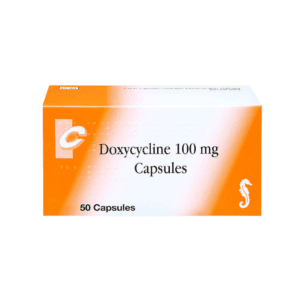Chlamydia Treatments
Chlamydia FAQ's
What are the symptoms of chlamydia?
Symptoms of Chlamydia can vary but commonly include genital discharge, painful urination, and pelvic pain. However, many people with Chlamydia may not experience any symptoms at all.
Is chlamydia a bacterial infection?
Yes, Chlamydia is caused by a bacterial infection, specifically the bacterium Chlamydia trachomatis.
How is chlamydia diagnosed?
Chlamydia is diagnosed through various tests, including urine tests, swab tests of the genital area, or tests of fluid samples from the affected area. These tests can detect the presence of Chlamydia DNA or antigens.
How common is chlamydia?
Chlamydia is one of the most common sexually transmitted infections worldwide, with millions of new cases reported each year.
How soon after exposure to chlamydia do symptoms appear?
Symptoms of Chlamydia typically appear within 1 to 3 weeks after exposure, but they can sometimes take longer to manifest.
Can I have chlamydia without symptoms?
Yes, it's possible to have Chlamydia without experiencing any symptoms. This is known as asymptomatic Chlamydia.
Can you get chlamydia from sharing towels or clothing?
No, Chlamydia is primarily transmitted through sexual contact, not through sharing towels or clothing.
How do you prevent chlamydia?
Preventive measures for Chlamydia include practicing safe sex by using condoms consistently and correctly, limiting sexual partners, and getting regular STI screenings, especially if you're sexually active.
Can I get chlamydia more than once?
Yes, it's possible to get Chlamydia multiple times, especially if you engage in unprotected sexual activity with an infected partner or multiple partners.
Can I have sex while being treated for chlamydia?
It's generally recommended to abstain from sexual activity until you and your partner(s) have completed treatment and are no longer infectious.
Is it safe to have sex with someone who has been treated for chlamydia?
It's safest to wait until both you and your partner(s) have completed treatment and received confirmation of clearance from a healthcare provider before resuming sexual activity.
Can chlamydia cause pelvic inflammatory disease?
Yes, untreated Chlamydia can lead to pelvic inflammatory disease in women, which can cause serious complications such as infertility, chronic pelvic pain, and ectopic pregnancy.
Can chlamydia affect my menstrual cycle?
Yes, Chlamydia can sometimes cause irregularities in the menstrual cycle, including heavier or lighter bleeding, irregular periods, or spotting between periods.
How is chlamydia treated?
Chlamydia is typically treated with antibiotics, such as azithromycin or doxycycline, prescribed by a healthcare provider. It's important to complete the full course of antibiotics as directed, even if symptoms improve.
How long does it take for chlamydia to clear up after treatment?
Chlamydia usually clears up within 1 to 2 weeks after starting treatment. However, it's important to complete the full course of antibiotics as prescribed by your healthcare provider to ensure the infection is fully eradicated.




